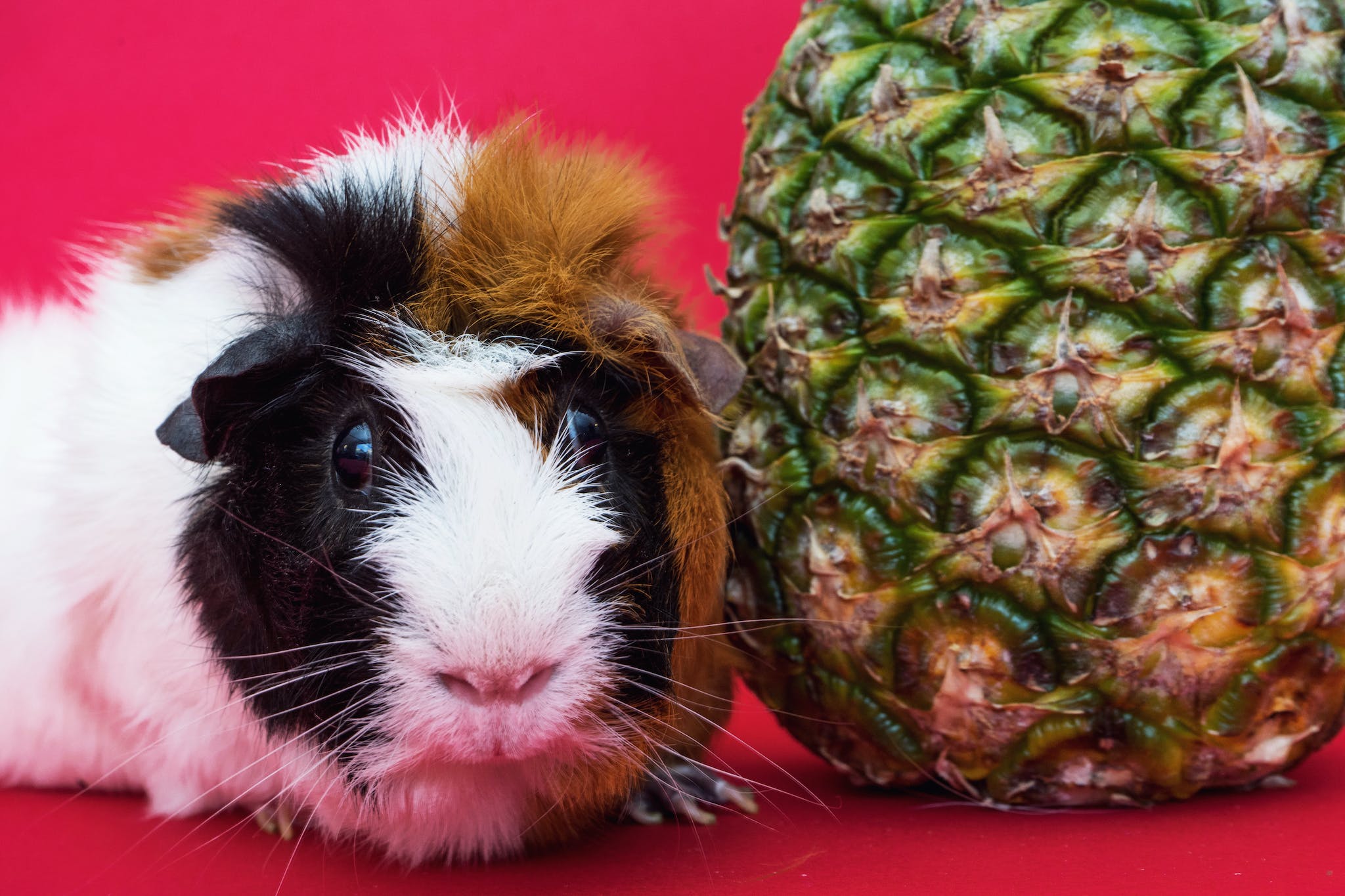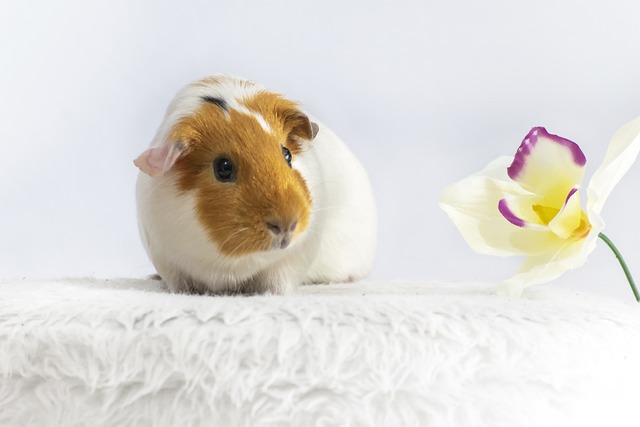Are Guinea Pigs Hypoallergenic? The Truth About Guinea Pig Allergies
There are some affiliate links below, but they are all products I highly recommend. For more info, view my disclosure here.
If you’re considering getting a guinea pig as a pet, you may be wondering if they are hypoallergenic. While some people assume that guinea pigs are a safe choice for those with allergies, the answer is not so straightforward. The short answer is that no, guinea pigs are not hypoallergenic. Below, we’ll take a closer look at guinea pigs and allergic reactions, as well as explore whether or not there are hypoallergenic guinea pigs available.
First, it’s important to understand what causes allergic reactions to pets. Most people who are allergic to pets are actually reacting to proteins found in the animal’s saliva, urine, or dander (dead skin cells). When these proteins are shed into the environment, they can trigger an immune response in sensitive individuals. While some pets may produce less dander or shed less frequently, there is no such thing as a completely hypoallergenic pet.
So, where do guinea pigs fit into this picture? Guinea pigs do produce dander, which means that they can potentially trigger allergic reactions in some people. However, they are not known to produce as much dander as some other pets, such as cats or dogs.
Additionally, guinea pigs are relatively low-maintenance pets that don’t require as much grooming as some other animals, which can help to reduce the amount of allergens in the environment.
Understanding Allergies and Guinea Pigs
If you’re considering getting a guinea pig as a pet, one question you may have is whether or not they are hypoallergenic. While guinea pigs are generally considered to be a good choice for people with allergies, they can still cause allergic reactions in some individuals. In this section, we’ll explore the basics of allergies and guinea pigs and what you need to know to make an informed decision.
What Causes Allergic Reactions?
Allergic reactions occur when the immune system overreacts to a substance that is normally harmless. When the immune system encounters an allergen, it produces antibodies that trigger the release of histamine and other chemicals. These chemicals cause inflammation, itching, and other allergy symptoms.
Common Allergens in Guinea Pigs
Guinea pigs can produce several allergens that can cause allergic reactions in some people. These allergens can be found in their fur, saliva, urine, and dander. Some common allergens in guinea pigs include:
- Proteins in urine: Guinea pigs produce a protein called Fel d 1, which can be found in their urine. This protein is a common allergen in cats as well.
- Dander: Like all animals, guinea pigs shed dead skin cells, known as dander. This dander can contain allergens that can trigger allergic reactions.
- Saliva: Guinea pigs groom themselves by licking their fur, which can spread allergens from their saliva to their fur.
If you have pet allergies, it’s important to note that guinea pigs are not the only animals that can cause allergic reactions. Other common pet allergens include dogs, cats, and rodents like mice and rats.
Overall, while guinea pigs are generally considered to be a good choice for people with allergies, it’s important to be aware of the potential for allergic reactions. If you’re considering getting a guinea pig, it’s a good idea to spend some time around them first to see if you have any allergy symptoms. If you do experience allergy symptoms, you may need to consider a different type of pet or take steps to minimize your exposure to allergens, such as keeping your guinea pig in a separate room or using an air purifier.
Are Guinea Pigs Hypoallergenic?
If you are considering getting a guinea pig as a pet, you might be wondering if they are hypoallergenic. The short answer is no. While some people may have fewer allergic reactions to guinea pigs compared to other pets, they are not considered hypoallergenic.
The Myth of Hypoallergenic Pets
The term “hypoallergenic” is often used to describe pets that are less likely to cause an allergic reaction in humans. However, there is no such thing as a completely hypoallergenic pet. All animals produce allergens, which can cause allergic reactions in some people. Some animals may produce fewer allergens than others, but this can vary from person to person.
Hairless Guinea Pig Breeds
Hairless guinea pig breeds, such as Skinny pigs, are often thought to be hypoallergenic because they have less fur. However, they still produce allergens from their skin and saliva, which can cause allergic reactions in some people. Additionally, hairless guinea pigs require special care to keep their skin healthy, which may not be suitable for everyone.
In conclusion, while guinea pigs are not hypoallergenic, some people may have fewer allergic reactions to them compared to other pets. If you are considering getting a guinea pig and have allergies, it is recommended to spend time with them before bringing them home to see if you have any reactions. It is also important to maintain good hygiene practices, such as washing your hands after handling your pet and cleaning their living area regularly, to reduce the amount of allergens in your home.
Managing Allergy Symptoms
If you are allergic to guinea pigs, there are several steps you can take to manage your allergy symptoms. In this section, we will discuss some ways to reduce your exposure to allergens and the different allergy treatments and medications available.
Reducing Exposure to Allergens
Reducing your exposure to guinea pig allergens is the best way to manage your allergy symptoms. Here are some tips to help you reduce your exposure:
- Keep your guinea pig in a separate room with good ventilation.
- Use an air purifier with a HEPA filter to remove allergens from the air.
- Vacuum your home regularly with a vacuum cleaner that has a HEPA filter.
- Wash your hands after handling your guinea pig.
- Take a shower and change your clothes after handling your guinea pig.
It is also a good idea to get an allergy test to determine if you are allergic to guinea pigs or other allergens.
Allergy Treatments and Medications
If you are allergic to guinea pigs, there are several allergy treatments and medications available to manage your symptoms. Here are some options:
- Allergy shots: Allergy shots can help reduce your sensitivity to guinea pig allergens over time.
- Antihistamines: Antihistamines can help relieve symptoms such as sneezing and itching.
- Nasal corticosteroids: Nasal corticosteroids can help reduce inflammation in your nasal passages and relieve symptoms such as congestion and runny nose.
- Decongestants: Decongestants can help relieve nasal congestion.
It is important to talk to your doctor about which allergy treatment or medication is best for you.
Choosing the Right Pet
When it comes to choosing a pet, there are many factors to consider. For allergy sufferers, finding a hypoallergenic pet is a top priority. Guinea pigs are often considered a good option for those with allergies, but is this really the case?
Considerations for Allergy Sufferers
While guinea pigs are not completely hypoallergenic, they are generally considered a good option for those with mild allergies. This is because they produce less dander than many other warm-blooded animals. However, it is important to note that some people may still have allergic reactions to guinea pigs.
If you are considering getting a guinea pig and you have allergies, it is a good idea to spend some time around them before making a decision. Spend some time in a pet store or with a friend who has guinea pigs to see if you have any allergic reactions.
Alternatives to Guinea Pigs
If you have allergies and guinea pigs are not the best option for you, there are other small animals that may be a better fit. Some options include:
- Fish: Fish are a great option for those with allergies as they do not produce dander.
- Reptiles: Reptiles are also a good option for those with allergies as they do not have fur or produce dander.
- Birds: Some species of birds, such as parakeets, produce less dander than others and may be a good option for those with allergies.
When choosing a pet, it is important to consider your allergies and find a pet that will not exacerbate your symptoms. While guinea pigs may be a good option for some, there are other alternatives that may be a better fit for you. Be sure to do your research and talk to a pet store or veterinarian to find the right pet for you.
Caring for a Guinea Pig with Allergies
If you or someone in your household has allergies, it’s important to take extra precautions when caring for your pet guinea pig. Here are some tips to help you create a clean living environment and protect yourself from allergens.
Creating a Clean Living Environment
One of the most important steps you can take to reduce allergens in your guinea pig’s environment is to keep their cage clean. This means cleaning the cage on a regular basis, including changing out the bedding and wiping down any surfaces.
When choosing bedding for your guinea pig’s cage, it’s important to avoid wood shavings, which can be a source of allergens. Instead, opt for paper-based bedding or fleece liners that can be washed and reused.
In addition to cleaning the cage, it’s important to keep the surrounding area clean as well. Vacuum or sweep regularly to remove any stray bedding or hay that may have escaped the cage.
Personal Protective Measures
If you have allergies, it’s important to take personal protective measures when handling your pet guinea pig. This may include wearing a face mask or gloves to reduce your exposure to allergens.
When handling your guinea pig, try to avoid touching your face or eyes, as this can transfer allergens to your skin and mucous membranes.
It’s also important to wash your hands thoroughly after handling your guinea pig or cleaning their cage. This can help remove any allergens that may be present on your skin.
By taking these steps to create a clean living environment and protect yourself from allergens, you can enjoy the companionship of your pet guinea pig without compromising your health.
Recognizing Severe Allergic Reactions
If you’re considering getting a guinea pig but have concerns about allergies, it’s important to recognize the symptoms of severe allergic reactions.
Symptoms of Severe Reactions
Most allergic reactions to guinea pigs are mild and may include symptoms such as sneezing, runny nose, and itchy eyes. However, in severe cases, an allergic reaction can lead to anaphylactic shock, a life-threatening condition that requires immediate medical attention.
Symptoms of anaphylactic shock may include:
- Difficulty breathing
- Swelling of the face, lips, tongue, or throat
- Rapid or weak pulse
- Hives or rash
- Nausea or vomiting
- Dizziness or fainting
When to Seek Medical Help
If you experience any of the above symptoms after coming into contact with a guinea pig, it’s important to seek immediate medical attention. Anaphylactic shock can be fatal if left untreated.
Even if your symptoms are not severe, it’s still a good idea to talk to your doctor if you think you may be allergic to guinea pigs. They can help you determine the best course of action and may recommend allergy testing or medication.
If you have a history of asthma or other respiratory conditions, it’s especially important to be cautious around guinea pigs. Exposure to their urine or saliva can trigger asthma symptoms and potentially lead to a severe reaction.
Overall, while guinea pigs are not considered hypoallergenic, most allergic reactions are mild and can be managed with proper care and treatment. By recognizing the symptoms of severe reactions and seeking medical help when necessary, you can safely enjoy the company of these adorable pets.
FAQs About Guinea Pigs and Allergies
If you are considering getting a guinea pig as a pet, you may be wondering if they are hypoallergenic. Here are some frequently asked questions about guinea pig allergies:
Can You Build Immunity to Pet Allergies?
Unfortunately, there is no cure for pet allergies, and it is not possible to build immunity to them. Allergies occur when your immune system overreacts to a particular substance, such as pet dander. While some people may experience a decrease in symptoms over time, this is not the same as building immunity.
Are There Hypoallergenic Guinea Pig Breeds?
There is no such thing as a completely hypoallergenic guinea pig pet. If you are considering getting a guinea pig and have allergies, it is recommended that you spend time with different breeds before making a decision.
If you do have allergies, it is important to be aware of the symptoms. Guinea pig allergy symptoms can include sneezing, runny nose, itchy eyes, and skin rashes. If you experience any of these symptoms, it is best to consult with a doctor to determine the best course of action.
While there are no completely hypoallergenic guinea pig breeds, some may produce fewer allergens than others. If you have allergies, it is important to spend time with different breeds before making a decision on which one to get. And remember, if you do experience symptoms, consult with a doctor for the best course of action.






